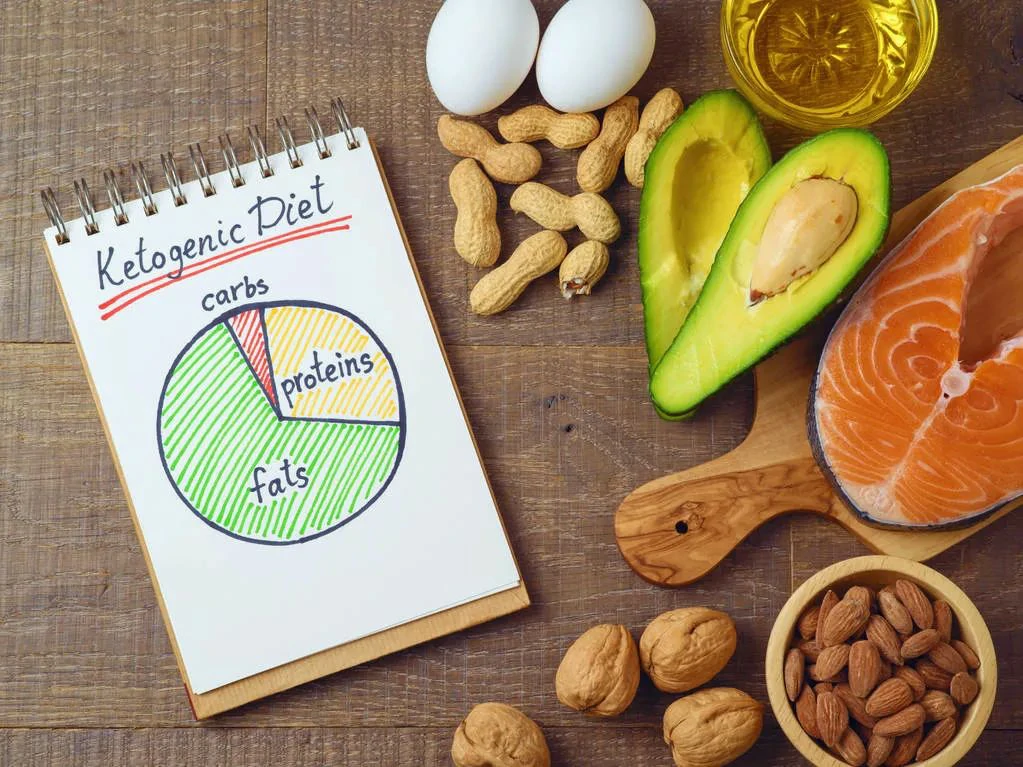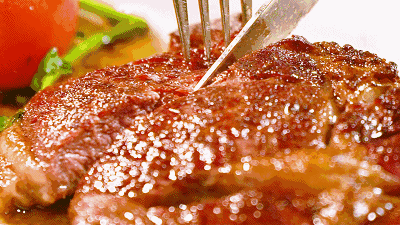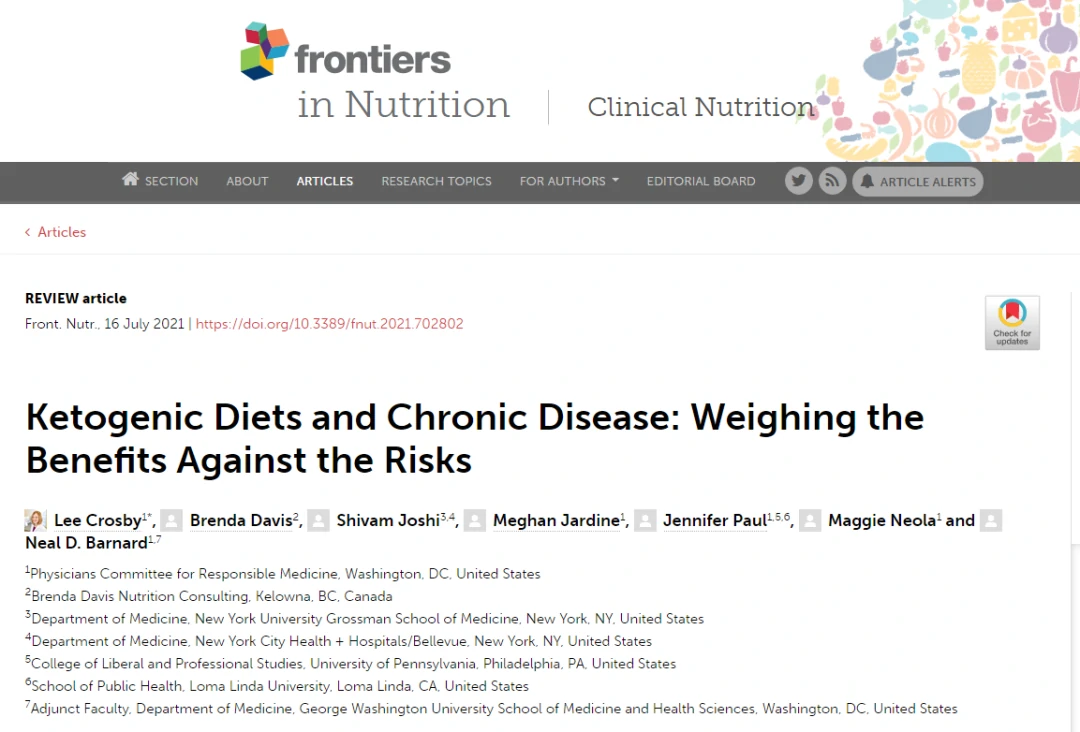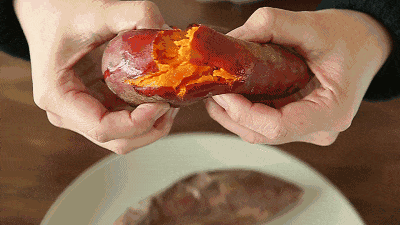Can a ketogenic diet help you lose weight Scientist Yes! but can also promote a variety of diseases
For many people, losing weight is a “blocked and long” thing, and the “ketogenic diet” seems to be a shortcut for many people who want to lose weight: as long as you adjust the diet pattern, you can lose weight quickly.

This eating pattern may help you lose weight, but a new study suggests that the ketogenic diet may cause long-term health damage and increase the risk of several diseases.
What exactly is a ketogenic diet? How does it make you lose weight? What are the health effects of sticking to this eating pattern for a long time?
What is a ketogenic diet?
The ketogenic diet is a very low-carb, high-fat dietary pattern.
In an ordinary balanced diet, carbohydrates account for 50% to 65% of total calories, fat accounts for 20% to 30%, and protein accounts for 10% to 15%.
In the ketogenic diet mode, carbohydrate energy supply only accounts for 4% to 17% of total calories, fat accounts for 60% to 90%, and protein accounts for 6% to 35%.
To put it bluntly, it is to eat less or even no carbohydrates, eat a moderate amount of protein, and a lot of fat.
During a ketogenic diet, the body produces a class of substances called ketone bodies, hence the name.

What does this eating pattern do?
Relieve epilepsy in children
The ketogenic diet first appeared in the early 1920s. It was first used by a doctor named Russel Wilder to treat patients, and the therapy spread. Data show that the ketogenic diet can stop 14% of children with epilepsy and reduce the intensity of the disease in about 50% of children with epilepsy.
lose weight
Burn fat: Low carbohydrate intake forces the body to break down glycogen stored in the muscles and liver for energy. Glycogen is depleted, and the body turns to use fat for metabolic decomposition, producing ketone bodies, which provide energy for the body. In this way, ketone bodies replace glucose to provide energy to the body.
Block fat synthesis: Without the stimulation of glucose, the level of insulin secretion by the body also becomes very low, so that the body’s pathway for fat synthesis and metabolism is hindered.
While constantly decomposing fat, while unable to synthesize adipose tissue, the body fat content will drop again and again to achieve the effect of weight loss.
A ketogenic diet increases the risk of multiple diseases
Some people indeed lose weight after following the ketogenic diet, and many people indeed experience various side effects after the ketogenic diet, including hair loss, constipation, irregular menstruation in women, fatigue, headaches, nausea, rough skin, etc.
In an article recently published in the Swiss journal Frontiers in Nutrition, researchers from the American Society of Responsible Physicians, New York University, the University of Pennsylvania, George Washington University, and Bellevue Hospital in New York evaluated the ketogenic diet. The conclusion is that a ketogenic diet may cause long-term health damage: A high-fat diet increases the risk of several diseases, including heart disease, cancer, diabetes, and Alzheimer’s disease.

“The typical ketogenic diet is a disease-causing disaster,” said the study leader.
The researchers say there is currently a lack of long-term and large-scale studies on the ketogenic diet. Based on the available evidence, the risks of a ketogenic diet clearly outweigh the benefits for most people.
The following injuries make the body unbearable:
Affect tissue repair
Protein utilization is altered during the ketogenic diet-induced ketosis process, causing the body to allocate as much protein as possible to gluconeogenesis and only the least necessary amount for tissue repair.
impaired bowel function
Ketogenic diets are low in fiber and can be detrimental to healthy gut function, and gut health affects every aspect of your body’s health.
cause malnutrition
Rejecting carbohydrate foods is bound to bring the risk of an unbalanced diet and micronutrient deficiencies, which can lead to serious health problems if maintained for a long time without timely correction.

Cause “ketone” poisoning
Excessive accumulation of ketone bodies in the blood can cause ketoacidosis, nausea, vomiting, the smell of rotten apples in the breath, dehydration, shock, headache, dizziness, drowsiness, severe cases, coma, and cerebral hypoxia.
lead to the formation of kidney stones
One of the greatest potential risks of a ketogenic diet is the formation of kidney stones, a finding that is frequently mentioned in the pediatric epilepsy literature. Moreover, a high-protein ketogenic diet can also accelerate kidney failure in patients with kidney disease.
cause cardiovascular disease
With such a high proportion of fat, it is bound to bring the risk of excessive intake of saturated fatty acids and increase the risk of cardiovascular disease.
increased cancer risk
In epidemiological studies, diets high in saturated fat, trans fat, monosaccharides, and animal protein (especially from red and processed meat), as well as low in dietary fiber, substantially increase the risk of nonalcoholic fatty liver disease risk of developing nonalcoholic steatohepatitis, which increases the risk of hepatocellular carcinoma.
6 diets for weight control
The ketogenic diet is particularly difficult for people who have difficulty losing weight. Under the supervision of professionals, they may be able to try it for a short time. After reaching the weight loss goal, they should slowly transition back to a healthy and balanced diet.
For ordinary people, don’t try it lightly, especially don’t use it for a long time without authorization.

If you want to control your weight scientifically and healthily, you can do the following things in terms of diet.
Eat enough 5 nutrients
These 5 types of nutrients are essential when losing weight, otherwise, the body will not even have the power to break down fat.
necessary sugars. Each person should consume at least 100 grams of carbohydrates per day, which is equivalent to about 150 grams of rice or wheat (raw weight).
B vitamins. In particular, the intake of B1 (thiamine) and B2 (riboflavin) is the premise to ensure vigorous energy metabolism during physical exercise.
Vitamin C. During exercise, a large number of reactive oxygen species are produced, which can cause oxidative damage to the body. Vitamin C can effectively scavenge active oxygen free radicals.
Mineral elements. Iron is involved in the transport of oxygen in the body and the process of tissue respiration; zinc can ensure the smooth metabolism of substances and energy in the body during exercise; chromium can promote the utilization of energy substances such as glucose by muscles, increase muscle growth and fat burning efficiency.
High-quality protein. Adequate intake of high-quality protein can promote the burning efficiency of muscle on fat and improve the weight loss effect of exercise.
Choose a light cooking method
Compared with frying, cooking methods such as steaming and blanching help people reduce fat intake and control energy intake. Usually, you can try to choose cooking methods such as steaming and blanching, and the operation is simpler.
4 “Energy Dishes” to Avoid
When eating out, try to avoid dishes with words such as “boiled”, “dry pot”, “dry stir-fry” and “salted egg yolk baked”. These are high-oil, high-salt, and high-fat dishes, which are not only bad for weight loss but also will cause a burden on health.
Adhere to eating until you are full for a long time, not only is it conducive to weight control, but also can ensure nutritional intake and keep your mind clear.
Eat less high-energy snacks
Do not put high-calorie snacks in the office, living room, etc., and replace them with nuts, yogurt, etc. Do not deal with breakfast, eat and drink dinner, office workers try to prepare their own lunch, less takeout.
eat the right staple
Substitute beans and potatoes for some bread, rice, and add beans to staples. When eating foods such as steamed sweet potatoes and shredded potatoes, be sure to deduct the amount of other staple foods.

Eat meat, prefer poultry, fish, and shrimp
The fat content of poultry meat and fish and shrimp is low, which is beneficial to control calories. It is recommended that obese people increase the intake of poultry meat, fish, and shrimp, and appropriately reduce the proportion of livestock meat.
It is best to remove the skin when eating chicken and duck meat. The skin fat content is as high as 50%, which can be described as half a mouthful of oil.
If you prefer livestock meat, choose pure lean meat with lower calories.